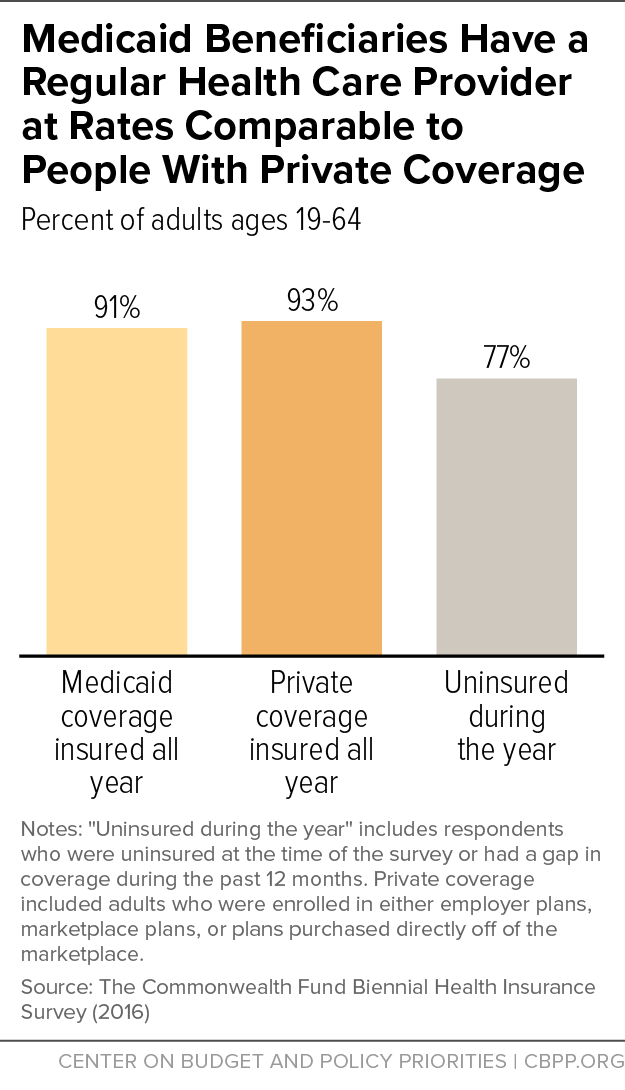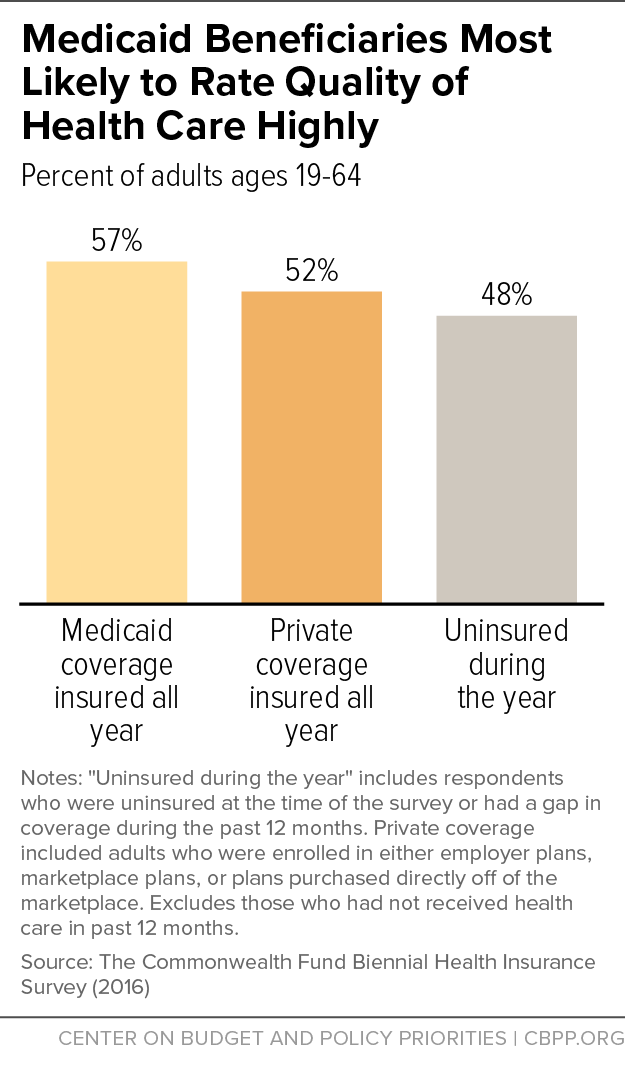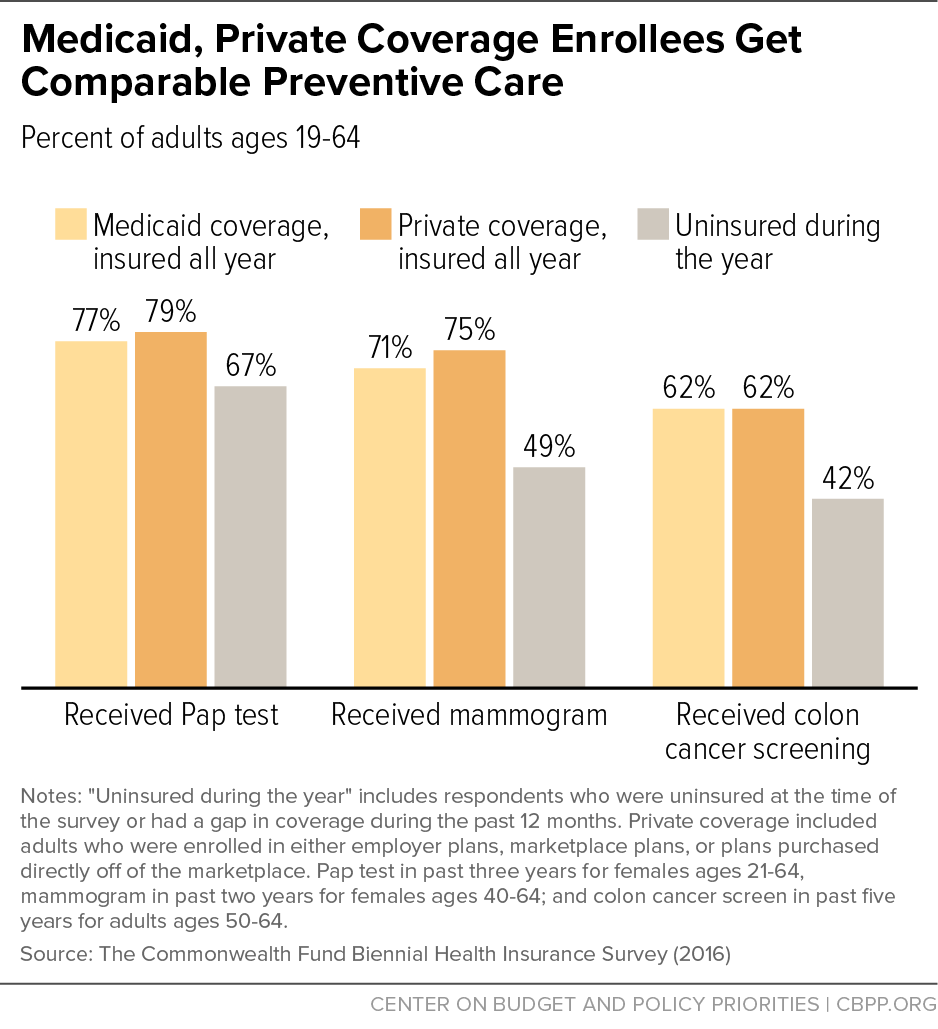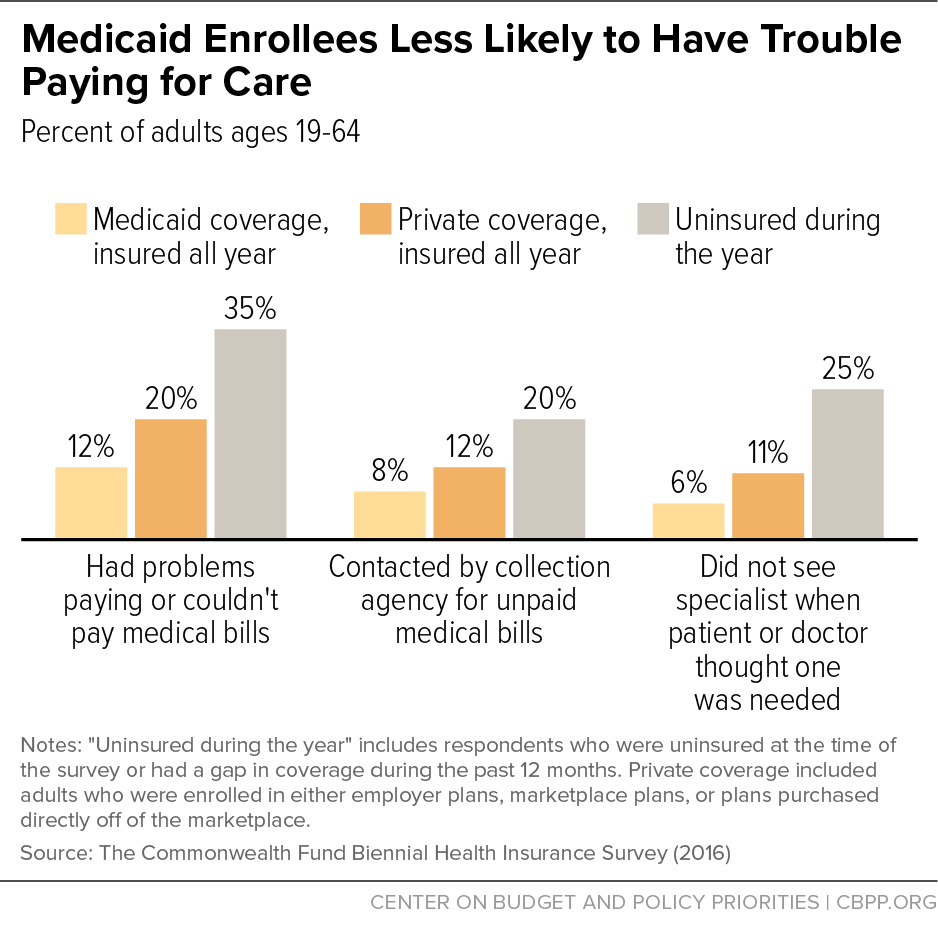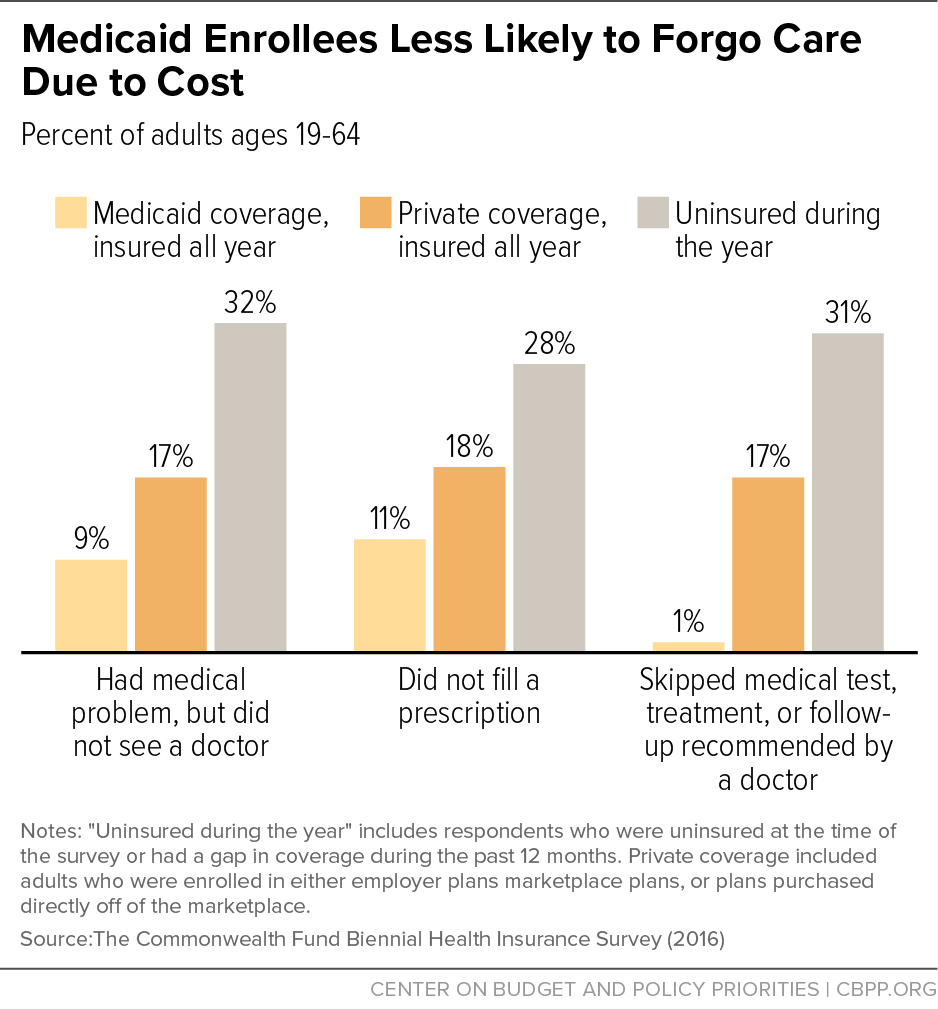BEYOND THE NUMBERS
The House-passed bill to repeal the Affordable Care Act (ACA) would severely damage Medicaid and make quality care less accessible to low-income Americans — the very feature of Medicaid that a new Commonwealth Fund analysis highlights.
That’s because the House bill would end Medicaid as we know it by converting the program to a per capita cap or block grant. Together with effectively ending the ACA’s Medicaid expansion, that would cut federal Medicaid spending by $839 billion over ten years. All told, the House bill would threaten care for nearly 70 million people who rely on Medicaid for accessible, quality health care.
Trump Administration officials, including Health and Human Services Secretary Tom Price, have repeatedly justified the cuts by falsely claiming that Medicaid doesn’t offer sufficient access to care — even though the cuts would reduce access because they’d likely force states to deeply cut payments to doctors and other providers, who’d then be less willing to accept new Medicaid patients. But the Commonwealth Fund’s findings underscore the truth: Medicaid’s access to care is comparable to private coverage, and its quality of care is higher.
-
Having a regular health care provider is an essential measure of access to care. Medicaid beneficiaries have a regular health care provider at rates comparable to people with private coverage.
-
Medicaid offers high-quality care. Medicaid beneficiaries are likelier than those with private coverage to say their care was excellent or very good.
-
People with Medicaid or private coverage receive preventive services far more regularly than those who are uninsured.
-
Medicaid offers very affordable coverage. Although people with Medicaid have lower incomes than other groups, Medicaid beneficiaries are also much less likely to have trouble paying for care out of pocket, or to have financial problems due to medical costs, than people with private coverage or those who are uninsured.
-
Medicaid beneficiaries are much less likely to go without needed care due to cost than privately insured or uninsured people.
